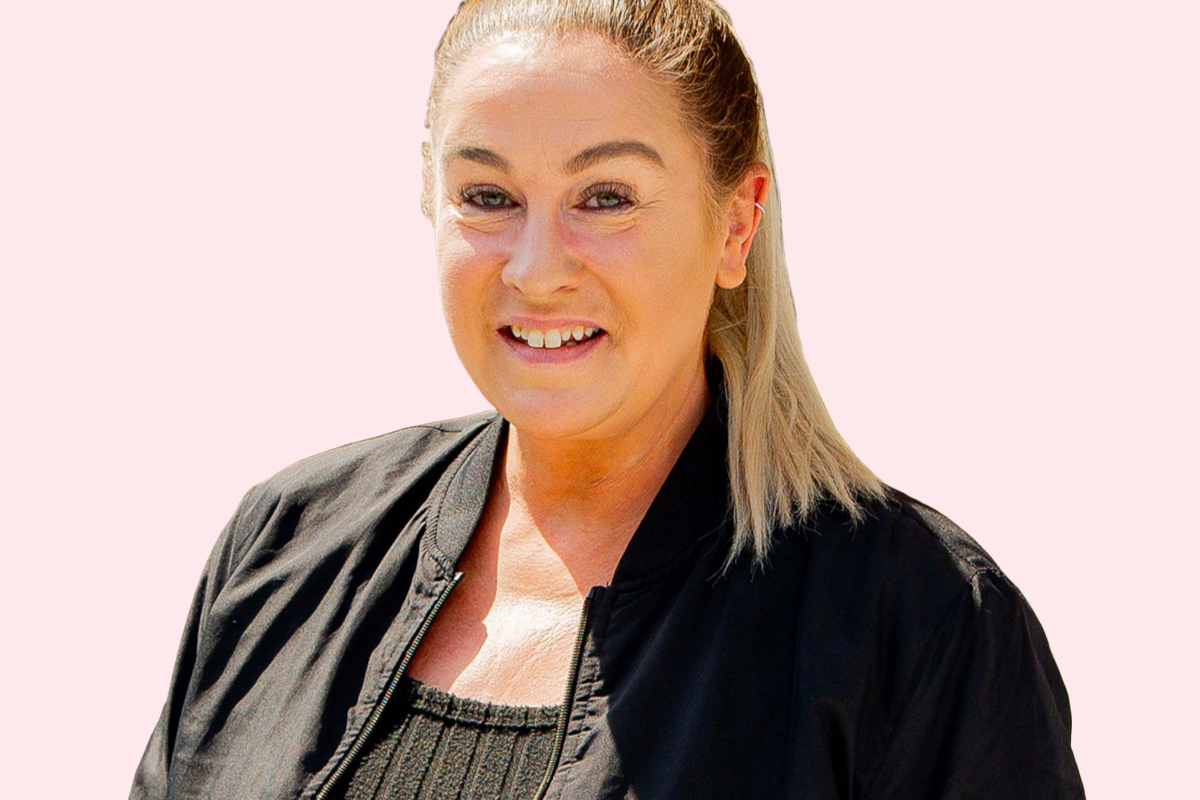You are viewing 1 of your 1 free articles
Wythenshawe CEO Nick Horne: ‘We go on about vulnerable residents. Stop labelling people, they’re residents, they’re people who live in our homes’
Blown-out aeroplane tyres, real resident engagement, and housing associations working with the city council. Grainne Cuffe talks to Nick Horne, chief executive of Wythenshawe Community Housing Group, and new chair of the Manchester Housing Providers’ Partnership
Nick Horne is a funny man. As someone starts vacuuming near us, the chief executive of Wythenshawe Community Housing Group tells me that it was arranged to make sure I know the carpets are clean.
We are sitting at a table out in Wythenshawe’s bright, open-plan office to speak about his appointment as chair of Manchester Housing Providers’ Partnership (MHPP). This is a group of housing associations operating in the city, and Manchester City Council. It aims to drive construction of affordable homes in the city, among other things (we’ll get to that later).
Mr Horne’s dry humour weaves through our conversation, and he takes me on tangential stories – one about the tyre of a plane blowing out while he was midair. But it is clear the Cornwall-born housing chief is very serious about Manchester and its people.
Mr Horne joined the helm of Wythenshawe in September 2019. Before that, he led Knightstone Housing in the South West for two decades, until it merged with DCH to become LiveWest.
And in April he became chair of MHPP, replacing Karen Mitchell, chief executive of Southway, when she retired.
The partnership consists of 21 members, Manchester-based housing providers and the city council. Seven are lead partners – those with the most stock in Manchester – and 14,000-home Wythenshawe is the biggest.
“That kind of made us the logical choice to take over as the chair, and I certainly felt the responsibility when we knew that the previous chair Karen was leaving.
“I wasn’t asked to, but when I said I was thinking of it, there was significant support.” He says, joking: “I think people were just relieved that nobody pointed the finger at them.”
Unlike the Greater Manchester Housing Partnership, which extends across the whole metropolitan area and is focused on housing, the partnership looks at a whole range of strategic themes through focus groups, such as growth and the delivery of affordable homes, community safety, homelessness, zero carbon, and employment and skills. A main group, known as the forum, meets every quarter with all partners invited to join.
“All of us want to work collaboratively, albeit recognising that our own individual communities are different,” Mr Horne explains.
“Also we want to align what we’re doing to Manchester City Council’s various strategies. That doesn’t mean we slavishly follow their strategies, but they certainly help influence us while we’re developing our strategies.” He says it’s about having “very intelligent and sometimes constructively challenging conversations”.
Can he give an example? He says residents across Manchester have “quite significant” mental health issues, while funding for support services have been cut.
“Accessing mental health services is quite tricky and many of us step into that space and try to support tenants with mental health difficulties. But there has to be a limit to that. We can’t become de facto social workers or take on a permanent ongoing relationship with tenants to help them through what they’re going through.”
Building relationships
So how good is the housing association members’ relationship with the council?
“We will legitimately look at how we can refine the work that we do so that we do pick up some of the slack from the city council,” Mr Horne says. “And hopefully over the next few years, we might see some reversal in the fortunes of funding for these pretty essential local authority services. But what it does mean is that the relationship between us and the council is very strong.”
We speak about what he terms the “big one” of the group’s many workstreams: growth and affordable homes. The council has a target of delivering 10,000 affordable homes between 2022 and 2032.
Mr Horne says: “We need to form a very clear pathway on it and be very clear with the city about what we are going to be doing and, if there are any gaps, focus on how we address [those]. One of the ways to do that is bringing new investment and new partners into MHPP.”
Major landlord L&Q joined the partnership in August after acquiring Trafford Housing Trust, along with for-profit investor Legal & General Affordable Homes. “Which is great,” Mr Horne says, “and signals a very definite intent to invest more in Manchester.”
The message he wants to send out as chair is that “Manchester is a great place to invest, is open for business and has one of the most progressive council leaderships” in the country.
Manchester is thriving in many ways, but Mr Horne says that “once you go outside the city centre, it’s a different story”. It is the sixth-most-deprived local authority in the country. Life expectancy in Manchester is falling, and is seven to eight years less than in neighbouring boroughs.
“Addressing those issues is a core part of what MHPP does,” he says, adding: “It’s a city of huge potential with pockets of significant affluence, but other areas – too many areas – of significant poverty.”
We were speaking the day before the general election, when the Labour Party was voted into power. Reflecting on the previous Conservative government, he says: “There is a real sense of ‘we are responsible for doing this’. We’ve got to make it happen. We can’t rely on central government. And far from not being able to rely on them, they’re actually making it worse by defunding.”
The Conservative government “to some extent [blamed] us for the consequences” of that defunding, he argues. “I think the sector has unwittingly walked into being a scapegoat for what is actually a much bigger structural failing in the infrastructure of the country,” he argues.
When we speak later, after the election, he tells me it’s good news that the “high-level messages” from the new Labour government “recognise the critical importance of delivering 1.5 million new homes and that the partnership looks forward to supporting the government to meet those targets.”
But he says a long-term Consumer Price Index plus 1% rent settlement, complemented by a “significant multibillion-pound investment in capital grant” is essential to delivering social rented homes at pace and scale “without having to subsidise development from our existing services”. The since-elected Labour administration has not been very forthcoming with extra funding, but there has been talk of a 10-year rent settlement for social landlords.
“In addition, to gain the support for new homes from people in local communities, it is essential for new development proposals to come with infrastructure investment so that we achieve balanced growth,” he adds. This is an issue that is only likely to get more pressurised: the i newspaper recently ran a prominent story about residents of new communities’ struggle to find a neighbourhood GP, after funds paid by developers to councils on the promise of new surgeries have not been spent.
Tenant satisfaction
Mr Horne sees the need for real change. “It’s not a victim culture. We don’t see ourselves as victims, but we do recognise that it’s right to be angry about social injustice. It’s right to be angry about health inequalities. It’s right that we should feel angry that the life chances of children born in Manchester today are less good than those born elsewhere. Why shouldn’t we be angry about it? What are we doing, just sleepwalking into some benevolent continuance of the current state? It’s not good enough.”
He says the death of Awaab Ishak, the two-year-old who died from prolonged exposure to mould in a Rochdale Boroughwide Housing flat, “should never have happened”.
“But the systemic issue of [poor-quality and aged housing] pervades lots of other estates across the country and that’s what needs tackling now.”
We move on to what Mr Horne says is his first priority: Wythenshawe. At a time when many landlords are struggling to keep their top grades, WCHG has maintained its V1/G1.
How? He credits his background as a chartered accountant as a “useful skill” to have as a chief executive, as it gives an “acute understanding of the financial dynamics of a business when the sector is under stress”.
The landlord has looked at all its services, asked residents what they wanted, and cut out those that they did not – for example, an assisted gardening service that only a small portion of residents benefitted from, but cost £280,000 per year. Engagement is something the landlord does well, Mr Horne contends.
Wythenshawe scored 78.2% for overall satisfaction in the tenant satisfaction measures (TSM) in 2023-24, nearly 9% higher than the median calculated by Housemark.
It has formal governance structures, community engagement teams, and several groups residents are involved in. It also helps, Mr Horne says, that 40% of its staff live in Wythenshawe and 20% of staff are tenants, which serves as constant, informal engagement.
The association has not received a consumer grade yet, but took part in one of the pilot inspections.
Mr Horne says: “You don’t get a written report from the regulator, but we detected that they were very satisfied, if not impressed by our resident engagement and governance structures. I don’t believe in tokenism. It does my head in all this ‘let’s consult with residents’ and it’s just faux consultation.
“If you’re going to do it, pose them a question where you know that the answers will genuinely influence the decisions you take.”
How did it go overall? “It went very well,” Mr Horne says. “We put a lot of effort into it. “Because myself and the exec and the board, we think we already strive as hard as we can to get the basics right … but we know we’re not perfect.”
Data is a major theme emerging from the consumer standard inspections: data on homes and on residents, how reliable it is, and how it is being used.
He says data is the “bedrock of being able to give good service” and he has been working on improving it at Wythenshawe since he joined.
“It has taken us a long time, it’s still a journey that we’re on.” The challenges are culture and skills. “People didn’t think it was an issue… people genuinely thought it was an IT issue.”
“Data is a different skill set, so we brought in brilliant people to look at how we manage, how we collect, how we cleanse, and we systemise data and ensure that it’s giving us the opportunity for genuine insight into our different customers,” he says.
A “big fan” of the consumer standards, Mr Horne says one of things that got him his previous chief executive job at Knightstone was that he was “always banging on” about consumerism. “We have to treat tenants as customers.”
He says the term ‘customer’ for tenants is “derided” by some who argue they do not have other housing choices. “They do… they could move to the private sector, it would have consequences for them, but they still have choices.
“Let’s not ‘vulnerabalise’ residents, because we do a lot of that in the sector. We go on about vulnerable residents. Stop labelling people, they’re residents, they’re people who live in our homes. They might identify as having some vulnerabilities, in which case we need to adapt our service.
“But actually we need to adhere to the basic principles of: get the basics right, go the extra mile when we can, give people choice and put things right when they go wrong.”
Mr Horne does not seem easily fazed. In his own words, he “just wants to get the job done”. When that tyre blew out five minutes into his flight from Liverpool to the Isle of Man, the plane took a detour to Belfast. Was he alarmed? It doesn’t seem so.
“No doubt lights came on [for the pilot] to say ‘you’ve burst a tyre’. A bit like when a light comes on in my car, but I just carry on driving and turn the stereo up, hoping it will all just go away.
“Presumably, Belfast airport was the only one that had a Kwik Fit garage,” he jokes, and they were on their way.
Recent longform articles by Grainne Cuffe
The first year of tenant satisfaction measures: the results
Government overhauled consumer regulation following Grenfell. Now, an Inside Housing survey of more than 200 councils and housing associations reveals the first results from the new TSMs regime. Grainne Cuffe investigates
Awaab’s Law: how it could challenge and change the sector
The consultation is out for Awaab’s Law, setting time limits for English social landlords on responding to repairs that pose a hazard to tenants. But what exactly is in the proposals? Grainne Cuffe reports
Homeless and on hold: the battle to get support from councils
Being threatened with homelessness is stressful enough. But, in some council areas, the process of getting support from the council is making things harder. Grainne Cuffe reports
Housing officers under pressure
Grainne Cuffe talks to housing officers about the stress of their jobs, as Inside Housing reveals that turnover in some frontline roles has risen dramatically










